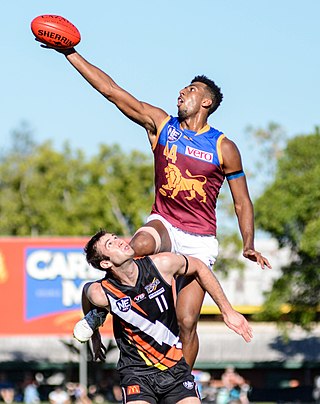
Australian football, also called Australian rules football or Aussie rules, or more simply football or footy, is a contact sport played between two teams of 18 players on an oval field, often a modified cricket ground. Points are scored by kicking the oval ball between the central goal posts, or between a central and outer post.

AFL Queensland (AFLQ) is the governing body of Australian rules football in Queensland. AFL Queensland has over 216,000 participants (including Northern Rivers which is governed by AFLQ) playing at all levels of football from the introductory NAB AFL Auskick program to the AFL Masters Competition. AFL Queensland covers 13 regions, 24 leagues and 159 clubs.
Jason Hadfield Dunstall is a former Australian rules footballer who played for the Hawthorn Football Club in the Australian Football League (AFL).

Recreational Football was a non-contact version of the Australian rules football game first played in 2003 and later sanctioned by the Australian Football League's game development arm, it was inspired heavily by the growing popularity of tag rugby. It was a more accessible version of Australian rules football that people could pick up and play. It was a mixed competition, with eight players on each team, accessible to players of both sexes, all shapes and sizes and requires minimal equipment to play. Rec Footy was criticised mainly by Australian rules players for appearing similar to netball and being too restrictive, lacking of ability for skilled footballers to run kick and play naturally whilst also penalising newer unskilled players with frequent turnovers.
Stephen Silvagni is a former Australian rules footballer who played for the Carlton Football Club in the Australian Football League (AFL).
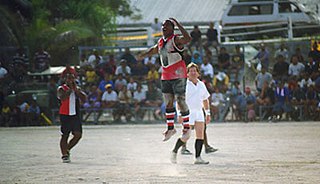
The Geography of Australian rules football describes the sport of Australian rules football played in more than 60 countries around the world. By 2017 more than 26 nations had contested the Australian Football International Cup, the highest level of worldwide competition.

The Nauru national Australian rules football team, nicknamed the Chiefs, represents Nauru in Australian rules football. Despite its small size and population, Nauru, which is the only country with AFL as its national sport, consistently ranks among the top eight teams in the world.

Women's Australian rules football, is the female-only form of Australian rules football, generally with some modification to the laws of the game.

AFL South Africa is the governing body and federation for Australian rules football in South Africa. Its name is due to its formal affiliation in 2004 to the AFL Commission the game's world governing body.
Australian rules football in South Africa is a team sport played at amateur level in the country with a small audience. The governing body is AFL South Africa.

Australian rules football in New South Wales is a team sport played and observed in the Australian state. It dates back to the colonial era in 1866, with organised competitions being continuous since the 1880s. Today, it is popular in several regions of the state, including areas near the Victorian and South Australian borders—Riverina, Broken Hill, and South Coast. These areas form part of an Australian cultural divide described as the Barassi Line. To the east of the line, it is known as "AFL", named after the elite Australian Football League competition. AFL NSW/ACT is the main development body, and includes the Australian Capital Territory.

Australian rules football is the most watched and attended sport and the second most participated code of football in Australia. Since originating in Victoria in 1858 and spreading elsewhere from 1866, it has been played continuously in every Australian state since 1903 plus the two major territories since 1916.
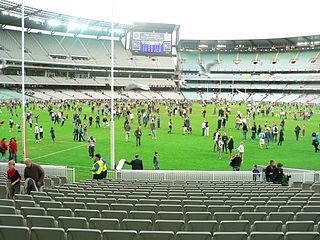
Kick-to-kick is a pastime and well-known tradition of Australian rules football fans, and a recognised Australian term for kick and catch type games. It is a casual version of Australian rules.
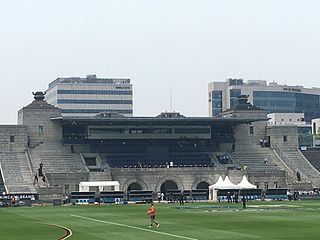
Australian rules football in China has been played since the 1989 and grew in popularity in the 2010s.
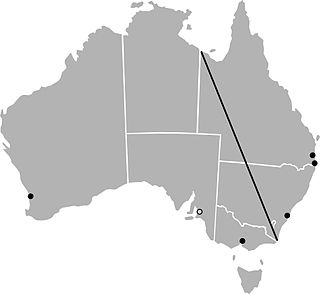
The "Barassi Line" is an imaginary line in Australia which approximately divides areas where Australian rules football or rugby league is the most popular football code. It was first used by historian Ian Turner in his "1978 Ron Barassi Memorial Lecture". Crowd figures, media coverage, and participation rates are heavily skewed in favour of the dominant code on both sides.

Australian rules football in Oceania is the sport of Australian rules football as it is watched and played in the Oceanian continent. The regional governing and development body is AFL South Pacific it is affiliated to the AFL Commission and was formed in 2008.
Australian rules football in Asia dates back to 1910 but was only sporadically played until the 1980s after which it has boomed. Clubs have begun in most Asian countries and a governing body for the region, AFL Asia was formed in 2008 to coordinate the Asian Championship and promote its affiliated leagues. AFL Asia estimates that there are now more than 10,000 Australian Football players across the continent.
Variations of Australian rules football are games or activities based on or similar to the game of Australian rules football, in which the player uses common Australian rules football skills. They range in player numbers from 2 up to the minimum 38 required for a full Australian rules football.
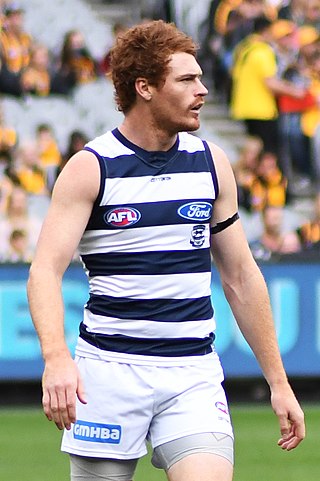
Gary Rohan is an Australian rules footballer who plays for the Geelong Football Club in the Australian Football League (AFL), having been initially drafted to the Sydney Swans.
Raymond Arthur Allsopp was an Australian rules football player who played for the Richmond Football Club in the Victorian Football League (VFL) from 1955 to 1959. Allsopp played as a rover and was known for reading the ball well off packs. Allsopp represented Victoria in 1957. The 1957 season was Allsopp's best in his VFL career—he kicked a career-high 35 goals and polled six Brownlow Medal votes. He finished his career having played 54 games and having kicked 69 goals.















